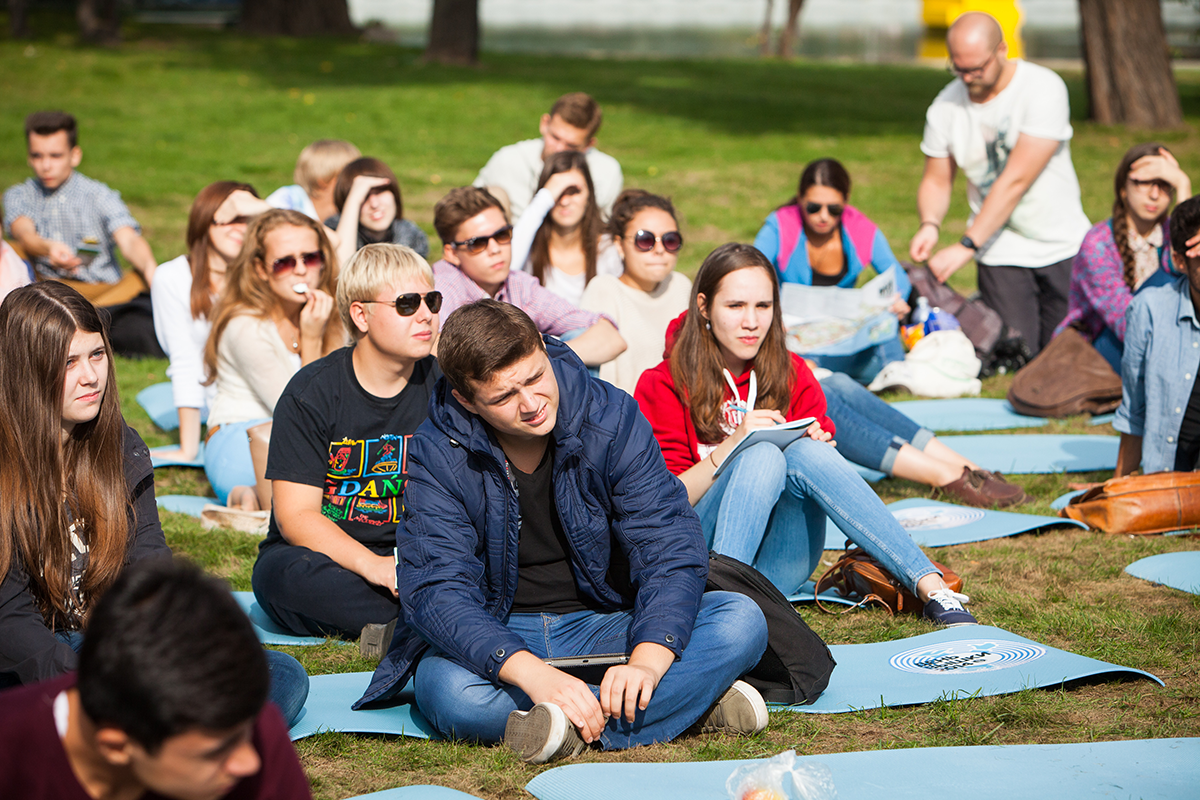HSE Open Talks at HSE Day

Each year HSE welcomes new colleagues – Ph.D. holders from the world’s best universities – who join the university through the international recruiting programme. HSE continues the tradition of public lectures at HSE Day, and holds HSE Open Talks in English. Academics from all over the world representing the most diverse disciplines will discuss their research and talk with the public.
Fighting Corruption in the Middle Kingdom: How President Xi Jinping's Anti-Corruption Campaign Changes China
When Xi Jinping became President of China in 2012, he started an anti-corruption campaign of unprecedented scale. Until today, more than 100,000 state officials have been indicted for corruption, including 120 officials at the very top. In the talk, we will discuss how the campaign has profoundly changed the way China works, and whether these changes are for the better or the worse.
Time: 14:00
Lecturer: Michael Rochlitz, Assistant Professor at the School of Political Science
Data Science for Nature exploration
The advances in machine learning methods have triggered an ever increasing accuracy of analyses. Data scientists are playing key role not only in big companies but also in the Natural Sciences research teams. The talk will discuss machine-learning-inspired approach that could significantly reduce the time and the efforts required for making a discovery.
Time: 14:30
Lecturer: Denis Derkach, Senior Research Fellow at the Laboratory of Methods for Big Data Analysis
Monumental Connections: Art and Friendship between the USA and the USSR during the Great Depression
The American economic crisis of the 1930s provided the impetus for a series of exchanges between American and Soviet artists that would have been unthinkable before 1929. The talk examines the influence of American-Soviet cultural exchange on the evolution of Modern art. It also describes the significance of the contributions of African-American artists, and their particular role in early Soviet-American cultural relations.
Time: 15:00
Lecturer: Angelina Lucento, Research Fellow at the The International Centre for the History and Sociology of World War II and Its Consequences
From Linear to Circular Economy: The Electronics’ Potential
As a byproduct of technological advancements, rapidly growing volumes of discarded electronics become electronic waste, simultaneously representing a great resource potential and a significant environmental threat. The talk will focus on various measures adapted by countries and multilateral organizations to deal with e-waste problems and to tap into its economic potential.
Time: 15:30
Lecturer: Natalia Milovantseva, Associate Professor at the Faculty of World Economy and International Affairs
What is Philosophy?
What is philosophy? The question seems to ask for an answer, a definition. But what if philosophy is something that cannot simply be defined? Or what if philosophy is a problem for which there is no solution? The talk will focus on these discussions and possible answers to illuminate the problem.
Time: 16:00
Lecturer: Andrew Haas, Associate Professor at the School of Philosophy
Innovative Behavior and Public Service Motivation of Russian Civil Servants
Motivation and behavior of civil servants has a considerable impact on their decision-making. The talk will analyze on the basis of empirical data how innovative and error-correcting behavior of Russian Public Civil servants correlates with three types of motivation: Public Service Motivation, Power Motivation and Security Motivation.
Time: 16:30
Lecturer: Tim Jaekel, Assistant Professor at the School of Public Administration
The Digital Turn: How Computers Change Our Life (And How Philosophy Helps Us to Understand It)
Computers have transformed our lives. This is a challenge for philosophical ethics. Take two examples: friendship and theft. Is virtual friendship real and can it replace friendship in real life? Can we steal something, even if the thing itself does not change its location, because it is merely virtual?
Time: 17:00
Lecturer: Stefan Hessbrüggen-Walter, Assistant Professor at the School of Philosophy
Russia's Challenge: A Declining Power's Quest for Status
The talk traces Russia's challenge to the international order to Russian leader's concerns about the country's international status. Most analysis trace Russia's concerns about status to domestic politics and Imperial/Cold War nostalgia. However, the speaker argues that Russia's current obsession with status is a natural product of its decline as a great power in the international system.
Time: 17:30
Lecturer: Andrej Krickovic, Assistant Professor at the Faculty of World Economy and International Affairs
Andrej Krickovic
Natalia Milovantseva
Andrew Haas
Хессбрюгген-Вальтер Штефан

